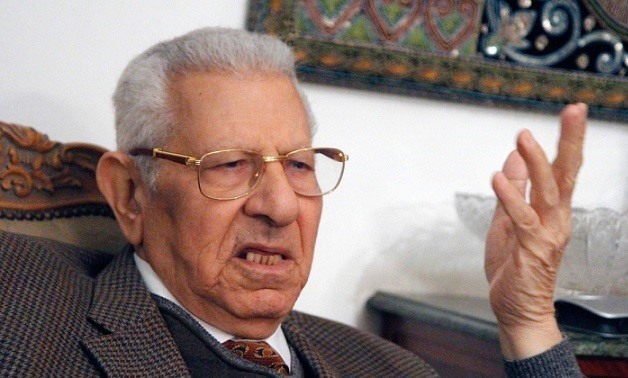
FILE- Head of Egyptian Supreme Council for Media Regulation (SCMR), Makram Mohamed Ahmed
CAIRO – 21 May 2018: Head of Egyptian Parliament's committee for media, culture and antiquities, Osama Heikal, called on Sunday the Supreme Council of Media Regulations to intervene to stop what he described as "the farce of Ramadan advertisements".
Heikel lambasted the number of advertisement breaks per a single episode, saying "How can a 20 minute episode be aired in two hours?!"
Ramadan is the hot season for TV shows and series in which hundreds of companies compete to present advertisements to their products. Each Ramadan, there is a social anger over the excessively long breaks that sometimes are as long as the screened episodes.
Being frustrated by these long breaks, many people tend to watch episodes on youtube; the popular series "Layali Eugenie" has gained more than half million views on its first episode.
Egypt’s Supreme Council for Media Regulation (SCMR) sets rules for everything that will air during Ramadan, especially advertisements.
Previously, secretary-general of the Egyptian Supreme Council for Media Regulation (SCMR), Ahmed Selim, told Egypt Today that "Any advertisement that will disrupt the Egyptian community’s values during the holy month of Ramadan will be banned".
He added that the new ads, expected to be aired during the holy month, should have valuable content and represent a respectful image of Egypt’s social community. He also stressed that the council is going to send a list of the Islamic Scholars' names authorized to issue fatwas (Islamic decrees) through media outlets during the holy month.
In January 2017, President Abdel Fatah al-Sisi issued a law establishing a syndicate for audio-visual media personnel, following the Parliament’s approval. The Media Syndicate is responsible for regulating audio-visual media practices, as well as defending its members.
Meanwhile, the Supreme Council for Media Regulations was established on December 24, 2016 after President Sisi issued Law No. 92 of 2016 on the Institutional Organization of the Press and the Media as an independent body with a corporate personality.
The role of the council is to regulate and supervise media outlets in all forms: printed, broadcast and electronic; and it establishes the framework and standards necessary to ensure that media outlets abide by the rules and ethics of the profession.
Comments
Leave a Comment